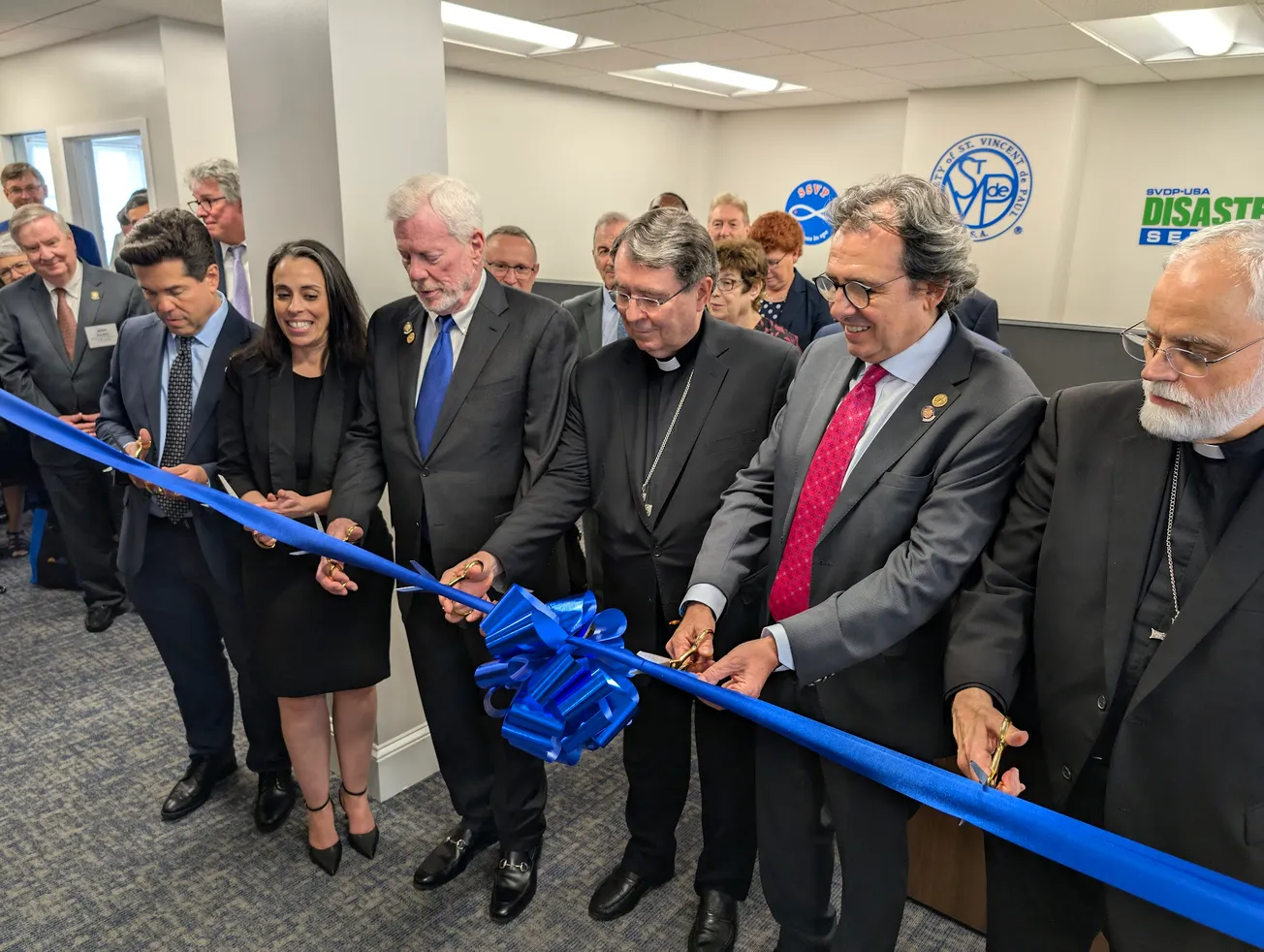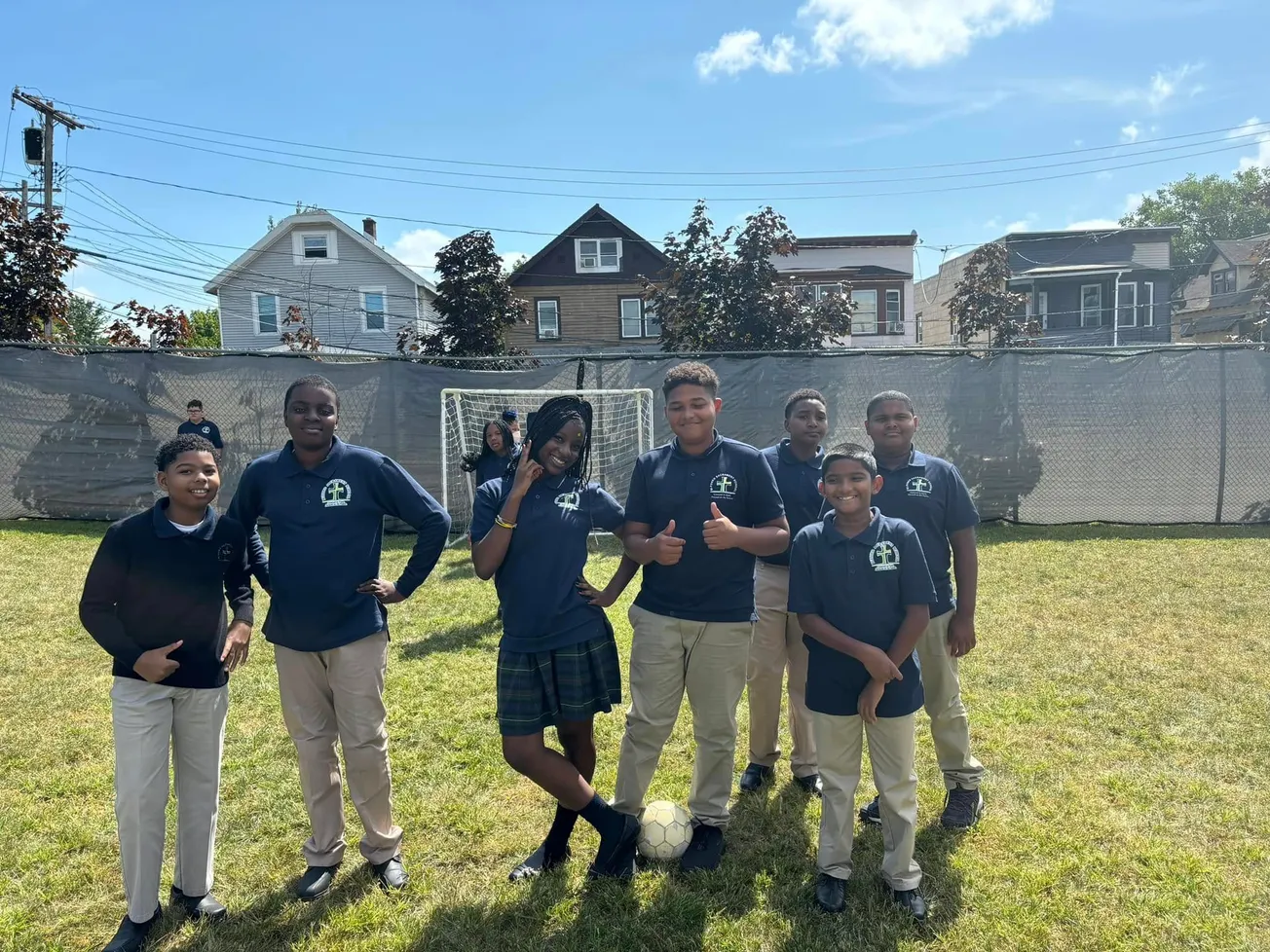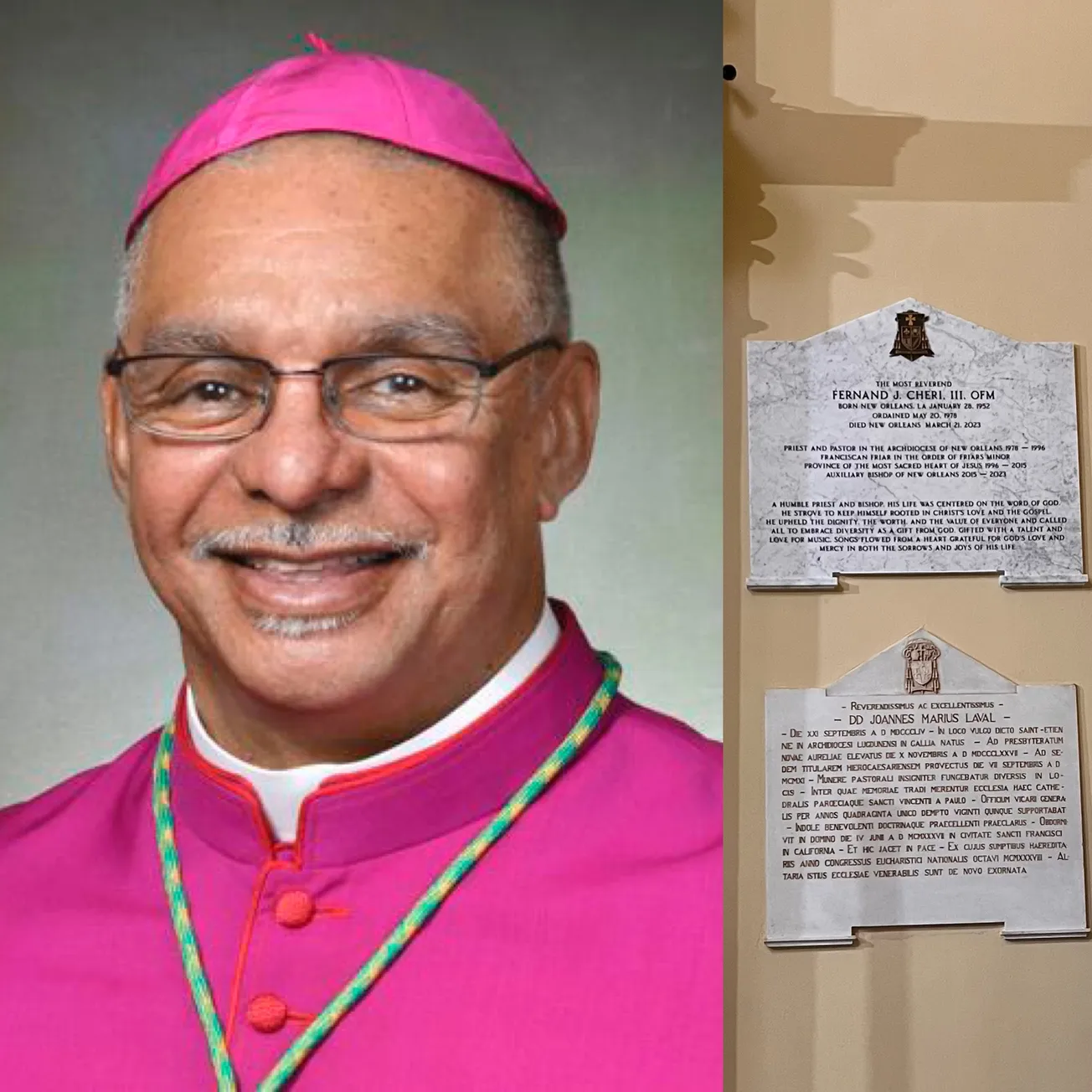The latest round of synod reports are in, and a new national synthesis from the U.S. Conference of Catholic Bishops describes “Fiery Communion” as a notable desire of respondents ahead of a second and final synod meeting this October in Rome.
The national report for the interim stage of the 2021-24 Synod on Synodality was released on May 28, with an accompanying letter from USCCB Doctrine Committee chair Bishop Daniel E. Flores of Brownsville. It follows several months of local discussions among U.S. Catholics at the behest of Pope Francis, who called for additional synodal listening sessions following a first round in 2021.
“Despite the short time and limited resources, diocesan leaders and bishops continued to accompany participants with creativity and agility in an authentic engagement in the synodal process,” Flores wrote. “Seventy-six percent of dioceses and eparchies in the United States submitted a report to the US Synod Team.”
U.S. Bishops Release National Synthesis for the Interim Stage of the 2021-2024 Synod | Read the full release at: https://t.co/latj7s1eqT pic.twitter.com/zPpVjQsGye
— U.S. Conference of Catholic Bishops (@USCCB) May 28, 2024
The fruit of more than 1,000 listening sessions and comments from more than 35,000 participants, the interim national report describes a desire for the Church as a “safe harbor,” nurturing spiritual development and authentic community in a notably diverse U.S. context. A local synthesis from Region VI (covering the states of Ohio and Michigan) noted the need to “promote interculturality so that there is more unity between cultures that share the same church.”
The concept of Fiery Communion was paired therein, referring to the Church’s “prophetic zeal” in sharing the Gospel in the modern age. However, division and polarization were noted among synod participants, including a conservative doctrinal and liturgical impulse expressed in Regions III (New Jersey and Pennsylvania) and VII (Illinois, Indiana, and Wisconsin), and a perceived lack of outreach to marginalized communities described in Region VIII (Minnesota and the Dakotas).
“The ardent nature of our diverse communion in Christ is not outside of the tradition,” the national synthesis reads. “These tensions call for a prophetic response.”
Other topics covered in the report include evangelization, active participation in mission—a major theme of the Synod on Synodality thus far—the need for boldly obeying the call of one’s vocation, and facing the challenges of the Church head-on.
Though Pope Francis is mentioned by name only sparingly in the report, the comments included from synod participants seem to address various perceptions of his focuses and how they have been received by American Catholics. Confusing communication from the hierarchy (a frequent criticism of the pontiff’s often controversial remarks) gets several mentions in the doc; it also makes note of disagreements about the Latin Mass, which Francis moved to widely restrict just months before the opening of the Synod’s diocesan phase in 2021.
Social justice also featured as a point of tension, with some Catholics calling for more emphasis on the Francis-backed mandates of inclusion and solidarity—such as with LGBTQ+ people, racial minorities, the disabled, and the poor—while others lament that not enough attention is paid to “the need to articulate Church teaching.” A comment noted from Region IV (The District of Columbia, Delaware, Maryland, Virginia, the Virgin Islands, West Virginia, and the military) specifically called out “the sin of racism and the sin of enslaving Black people for the betterment of the Church.”
A final section of the national synthesis describes conversations from a listening session held among the U.S. bishops themselves, which dealt with the challenges of relating well with priests from different cultural contexts (and countries), polarization, and dialoguing together more regularly within the episcopate.
“The Synod fosters communion and creates space for relationship,” reads a quote from one unnamed bishop. “It is important to come with humility.”
Several from among the U.S. episcopal ranks will be among the more than 360 delegates present this fall in Rome, including Flores and ten other diocesan bishops, as well as priests, religious, and laypeople from around the world.
Cardinal Wilton Gregory of Washington is one of two African-American Catholic delegates who will present, along with Dr. Cynthia Bailey Manns of Minneapolis—one of more than 50 women serving as synod voting delegates for the first time in Church history.
Their meeting will be shaped by an upcoming “Instrumentum Laboris” (working document) that makes use of the insights gleaned from the national synthesis reports, which were formed worldwide from this spring’s local listening sessions. The IL is expected to be released by the Vatican synod office in the coming weeks.
Nate Tinner-Williams is co-founder and editor of Black Catholic Messenger.









